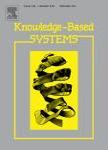版权所有:内蒙古大学图书馆 技术提供:维普资讯• 智图
内蒙古自治区呼和浩特市赛罕区大学西街235号 邮编: 010021

作者机构:Tsinghua Univ Dept Elect Engn Beijing 100084 Peoples R China Microsoft Res Asia Beijing 100084 Peoples R China
出 版 物:《KNOWLEDGE-BASED SYSTEMS》 (知识库系统)
年 卷 期:2019年第165卷
页 面:30-39页
核心收录:
学科分类:08[工学] 0812[工学-计算机科学与技术(可授工学、理学学位)]
基 金:National Key Research and Development Program of China [2016YFB0800402] National Natural Science Foundation of China [U1705261, U1536207, U1536201, U1636113]
主 题:Dimensional sentiment analysis Variational autoencoder Semi-supervised learning
摘 要:Dimensional sentiment analysis (DSA) aims to compute real-valued sentiment scores of texts in multiple dimensions such as valence and arousal. Existing methods for DSA are usually based on supervised learning. However, it is expensive and time-consuming to annotate sufficient samples for training. In this paper, we propose a semi-supervised approach for DSA based on the variational autoencoder model. Our model consists of three modules: an encoding module to encode sentences into hidden vectors, a sentiment prediction module to predict the sentiment scores of sentences, and a decoding module that takes the outputs of the preceding two modules as input and reconstructs the input sentences. In our approach, the sentiment prediction module is encouraged to accurately predict sentiment scores of both labeled and unlabeled texts to help the decoding module reconstruct such texts more accurately. Thus, our approach can exploit useful information in unlabeled data. Experimental results on three benchmark datasets show that our approach can effectively improve the performance of DSA with considerably less labeled data. (C) 2018 Elsevier B.V. All rights reserved.